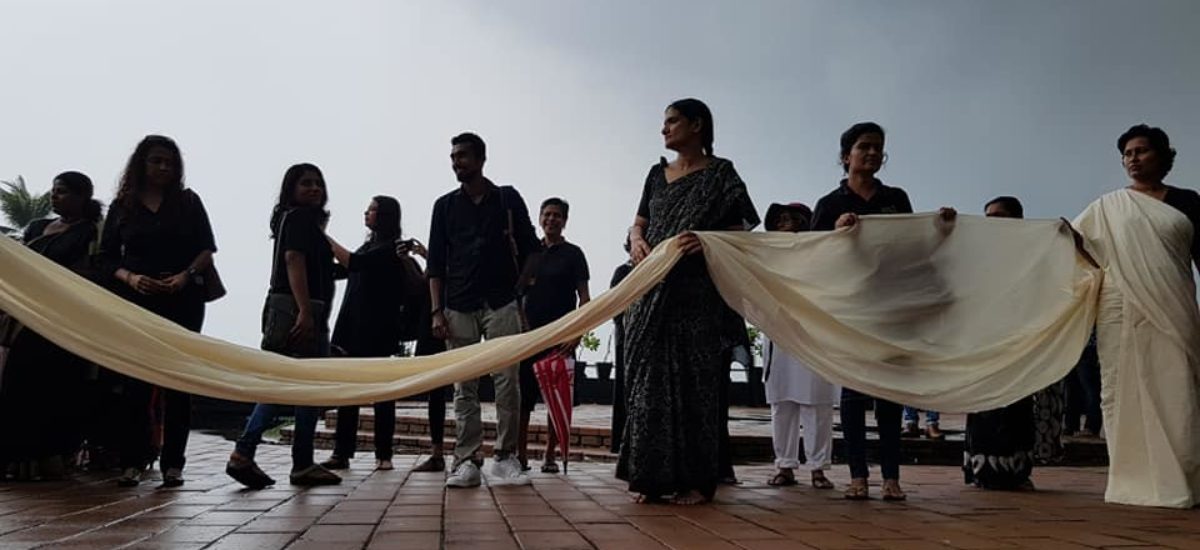Politically, it may appear that we are not one people. We have a long history of ethnicity-based politics within a small island with a measure of ethnic diversity unrivalled in countries of our size. But socially and culturally the reality appears to be different. Our ethnic communities are closer to each other culturally and socially than in many others, whether in South Asia or elsewhere. While there are regions in which one or another of the ethnic groups is dominant, many contain mixed neighbourhoods. People in these neighbourhoods not only visit their neighbours of different ethnicity but often participate in celebrating their festivals, notably Sinhalese and Tamil New Year and Christmas. Further our children play together in mixed teams.
Though some of our major sports clubs bear ethnic names (Sinhalese Sports Club, Tamil Union, Moors Sports Club, Burgher Recreation Club, etc.) this is largely a colonial heritage derived from a divide and rule policy extended into participation in sports activities. But segregation was contrary to our cultural heritage, and the exclusiveness in sports has progressively broken down. For a long time virtually every sports club has, in composition and representation in sports activities, been multiethnic, although many of them have not shed their ethnic names adopted in colonial times. Thus, for example the Tamil Union cricket team today is predominantly non-Tamil. These are welcome developments.
Many of our political parties have ethnic names, again a colonial heritage, reflecting ethnicity based representation in government till the Donoughmore Reforms around 1930. These reforms included voting rights for the lower social classes of men and for all women, bitterly opposed by a revered conservative and sexist national leader “as casting pearls before swine”. However, ethnicity has got embedded into our politics. The two major political parties do not have ethnic names but are dominated by Sinhalese, many of whom regard this country as essentially Sinhalese. In fact these parties have been progressively deserted by significant sections of the minorities who were originally loyal to these parties. Their desertion, reflects the unfortunate rising tide of ethnic divisiveness in our politics. New ethnicity based parties with more extreme policies than the earlier ethnicity based parties are being formed. The Sri Lankan Tamils and the Malaiyagha Tamils always had their political parties but the main Muslim party, the Sri Lankan Muslim Congress, was formed many years after independence, and has absorbed many Muslims who were previously members of the United National Party or the Sri Lankan Freedom Party. We now have a bewildering array of political parties, many of them with ethnic labels. The old order appears indeed to be yielding to the new, but in many respects the new is worse than the old.
While many corrupt political ‘leaders’ are scrambling for office so as to enjoy the perks of such positions, it is heartening to come across spirited action by two courageous youth Surin Chamara and Kasun Ukwatta who have made bold public statements against the prevailing political culture of corruption and servility towards those holding political power. As reported by Ruwanthie De Chickera, at the annual National Youth Awards Ceremony held at Nelum-Pokuna on the 28th of November 2018, these two young artists refused to accept their well-earned awards from the chief guests, politicians Udaya Gammanpila and Duminda Dissanayaka. They eventually received those awards from public officials.
On another theme, that of teaching history for national reconciliation, there is an excellent article by another youth, Awahnee Mendis “Teach Everyone’s History For Reconciliation“. For many decades, enlightened scholars have been pressing, with little success, for a radical change in the teaching of our history. It is on this theme that Awahnee concludes that;
“If the history of the Sinhala and Tamil people are tied together and taught positively, about how for centuries before colonialism, the people lived in harmony, we can ensure that understanding and a feeling of national pride and inclusion is felt by people.
By formally accepting, acknowledging and teaching that this whole country belongs to everyone and has been this way for centuries before colonialism, we will allow for an organic, long-lasting, sustainable unity.”
While the actions of the Head of the Executive have been deplorable, those of the majority of the Legislative and, above all, that of the Judiciary have been reassuring. Our political leadership continues to be dominated by feudal elite, linked to each other by corrupt rival clans that derive power from caste pedigree and family wealth, whether inherited or newly ill-gotten.
Most welcome is that we now see courageous leadership emerging from a younger generation, devoid of such credentials. We are greatly encouraged by the initative of youth like Surin Chamara, Kasun Ukwatta, Awahnee Mendis and Ruwanthie De Chickera. After very many depressing years, the future looks promising.
Read more about Sri Lanka’s political and constitutional crisis here.

